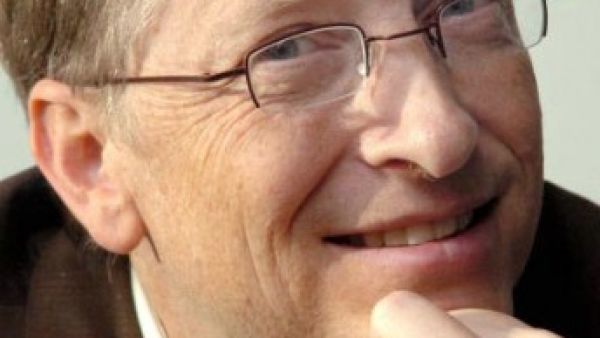Bill Gates, co-chair of the Bill and Melinda Gates Foundation, expressed willingness to collaborate with King Abdullah University of Science and Technology (KAUST) in research projects focusing on agriculture and food production.
In a roundtable with the media on Wednesday here in Jeddah, acknowledging the difficulties in growing food crops in the region due to water shortages, he said “there are good research, including what I saw in KAUST. We are backing and supporting the many agriculture research centers here because they help create new seeds” for production.
“At KAUST, they are looking at crops that deal with droughts, crops that deal with salt. I was pleased to see the quality of the work. It has grown very impressively in the last five years and continues to grow. No doubt we will find ways to work with them for the benefits of the farmers,” Gates pointed out.
In this region, Gates said the “solution is to raise internal (agricultural) productivity when that is appropriate and that is doable and the other one is to have long-term arrangement with other countries that may have more water in a nearby. By investing in those countries, it can be a win-win, where you are raising agriculture productivity in Africa and making sure that the output is available to this region,” he said.
“We see a lot of opportunity for agricultural investment,” Gates noted.
When asked about providing help to the Arab Spring countries, specifically Egypt and Yemen, Gates emphasized “our focus is on health and agriculture areas. In 2003, there was an outbreak of a type of polio after Haj in a number of countries. We did vaccination campaign in Egypt. We funded vaccines for Yemen. We also work on research for new seeds to help farmers. We focus on poor countries.”
On the difficulties facing their charity work given the political tensions in the region, Gates said “there has been a lot of progress in areas of health and agriculture in the last decade. When we first started in 1998, that was the year when about 14 million children under the age of five died. Just in the last year, the estimate was about 6.6 million, which is an unbelievable reduction. Going from 10 percent to five percent. In rich countries like Saudi Arabia and the United states, it is less than one percent. In African countries and some of poor Asian countries, it ranges from five percent to 10 percent and in extreme cases it is 20 percent.”
A reason why this number dropped down sharply is because there are better vaccines out, he said. “Any time there is instability, there is a huge setback,” noted.
On cooperation between Gates Foundation and Saudi Arabia, he said “Saudi Arabia is the most generous country in terms of overall philanthropy. The most generous country outside the Middle East is USA. Overall USA philanthropy is about $300 billion a year and our foundation is about $4 billion a year. Most of the philanthropy in the USA like Saudi Arabia is given within the country. Money given to poor countries can have far greater impact per dollar than money given in rich countries. People are more concerned about whether the money is well used and if there is corruption.”
He lauded the role of Saudi Arabia is the biggest donor to the IDB and “that is a very helpful thing. They have the Saudi Agricultural Fund which has given a lot. Saudi Arabia is the biggest supporter to countries that need help.”
He also commended the charitable and humanitarian activities being carried out by the charitable organizations in many of the world’s poor regions, reiterating his support for programs that are focused on agriculture and health.
He said the Gates Foundation which specialized in health and agriculture issues, has been making progress. “Work is exciting. The progress we make on health is very strong. Being able to fund and do science to help poor people around the world,” he said.
Two of the areas that have been success for them are the establishment of new health organizations – a global fund in 2000 which is focusing on HIV, TB and malaria. The other one is focused on getting the latest vaccine for children all over the world. The Foundation is supporting these two organizations.
He added though that three countries have not get rid of all the cases, namely Nigeria, Afghanistan and Pakistan. “As long as we have cases in these countries, we will have outbreaks in areas that have been cleared before. We are in the process of clearing outbreaks.” There is an outbreak in Syria because the war hampers vaccination. “There are few cases in Iraq and Somalia and it spreads to the south of Kenya and west of Ethiopia. Cleaning up these outbreaks is handwork and expensive but it is feasible,” he noted.
Moreover, Gates said “in terms of polio, there was a big conference in Dubai a year ago in which we had a plan to eradicate polio in 2018. We raised most of the required money $5.5 billion in total. It was a successful conference and we had good backing from UAE and many other countries. The plan is to finish by 2018. Right now we are on track.”
However, there are hurdles in Pakistan, he added. “They are very challenging and we need more access to children in order to achieve the target date. It is possible that Pakistan could be the last country. Despite that, we still believe we can achieve the target date 2018.”

Bill Gates, co-chair of the Bill and Melinda Gates Foundation, expressed willingness to collaborate with King Abdullah University of Science and Technology (KAUST) in research projects focusing on agriculture and food production.







